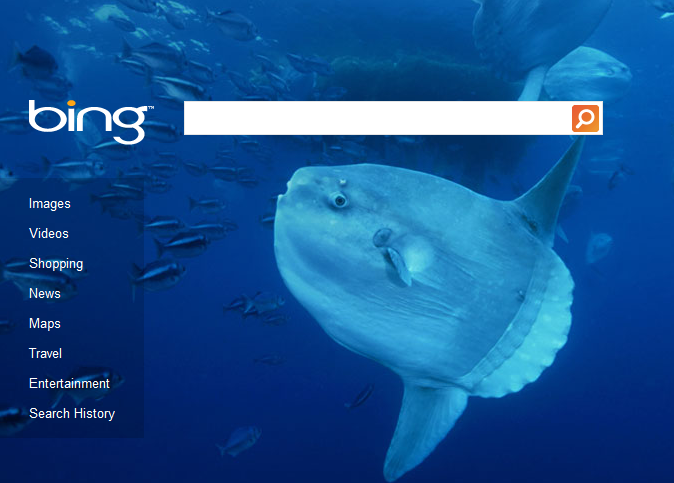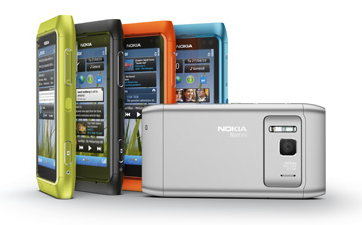Rumors have been escalating this week about a partnership between cellular phone titan Nokia and rising search player / global software leader Microsoft. Update: It’s official! Mobile marketers should be asking themselves, “If these two industry giants were to pair up, what could the effects be?”
Nokia would gain a modern smartphone OS (Windows Phone 7) with ready-made apps to reach consumers.
Although Windows Phone 7 (WP7) is just over 3 months old, the rapid growth of its app and product ecosystem has analysts rethinking their original opinions about the OS’s future. According to current published figures, WP7’s Marketplace has more than 7,000 apps for device owners to download. This alone could make Nokia more appealing to marketers, as Brafton has reported that mobile app advertising is a rising way to reach an on-the-go audience.
Aside from the apps, WP7 boasts a robust implementation of social media services (such as Facebook), email management via mobile Outlook, Zune, Internet Explorer Mobile, and Bing Search / Maps. All of these core features are comparable to competitor operating systems, if not arguably better in certain areas. For instance, the Zune Pass service is generally considered superior to iTunes due to its unlimited music downloading abilities for a set fee per month.
For marketers, this makes developing apps and sites optimized for WP7 a better value proposition. In addition, if you use Microsoft Advertising for PPC ads, they have the ability to appear on Windows Phone as well as normal search placements.
Bing could replace Google as Nokia’s default mobile search engine.
 If you aren’t familiar with the search engine war, Google is steadily losing market share and Bing has been on the ups between its rapid growth and recent deal to power Yahoo! search (demonstrated 29 percent growth in search volumes in 2010). Nonetheless, Google has maintained a strong lead in the mobile market, with StatCounter data indicating its services field more than 98 percent of mobile queries.
If you aren’t familiar with the search engine war, Google is steadily losing market share and Bing has been on the ups between its rapid growth and recent deal to power Yahoo! search (demonstrated 29 percent growth in search volumes in 2010). Nonetheless, Google has maintained a strong lead in the mobile market, with StatCounter data indicating its services field more than 98 percent of mobile queries.
If Microsoft is able to get Bing on more handsets, search adoption would be assured in Microsoft’s favor – especially with the volume of Nokia’s low and middle segment sales. Marketers shouldn’t underestimate the power of mobile searches this year, as Brafton has reported that tablet shipments are expected to surpass PC shipments in the coming months, along with consistently high growth of smartphone sales.
Microsoft would gain a high-profile mobile ally.
Based on sales and press, Microsoft’s big bets in the past year or so have seemed to pay off, between hardware like the Kinect and the most recent version of its desktop operating system, Windows 7. That being said, it has been somewhat of a rough road for the company in the mobile space. Their first attempt at releasing a new phone OS, KIN, was a flop and quickly disappeared from the market. Now, Microsoft has launched Windows Phone 7 and is committing massive resources to ensure the platform’s survival and prosperity.
 A partnership with Nokia would achieve two important goals for Microsoft: volume and quality. Although Nokia’s phone shipments have dropped recently, most analysts agree that this is due to the continued use of the Symbian OS on its phones and poor availability in the US. A new, modern OS, such as WP7, coupled with successful launches in the U.S. and Europe, could significantly turn the tide for both companies.
A partnership with Nokia would achieve two important goals for Microsoft: volume and quality. Although Nokia’s phone shipments have dropped recently, most analysts agree that this is due to the continued use of the Symbian OS on its phones and poor availability in the US. A new, modern OS, such as WP7, coupled with successful launches in the U.S. and Europe, could significantly turn the tide for both companies.
Nokia’s high-end smartphones, such as the N8, are consistently praised for excellent build quality and design. Microsoft would benefit from adding Nokia’s industrial expertise to its stable and perhaps using Nokia’s products as a core offering, a la Google’s Nexus One.
In short, I think that a Microsoft-Nokia partnership would help both businesses at this time. As Stephen Elop said,
“We too, are standing on a ‘burning platform,’ and we must decide how we are going to change our behaviour.”
Nokia is in a very nervous position, working furiously on MeeGo, but it’s quickly losing market share and competitiveness in both its high-end and low-end markets.
Let’s hope for some positive results – the smartphone space definitely could use more industry disruptions and competition, and this alliance would bring mobile marketers an enhanced product ecosystem to reach a broad audience.

